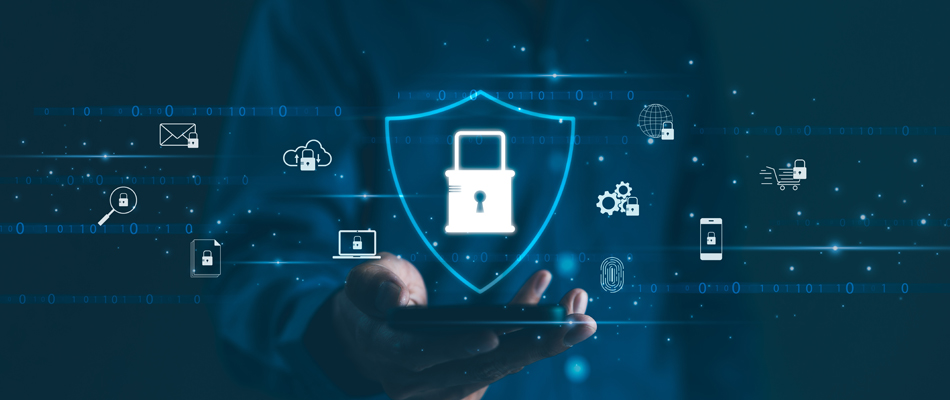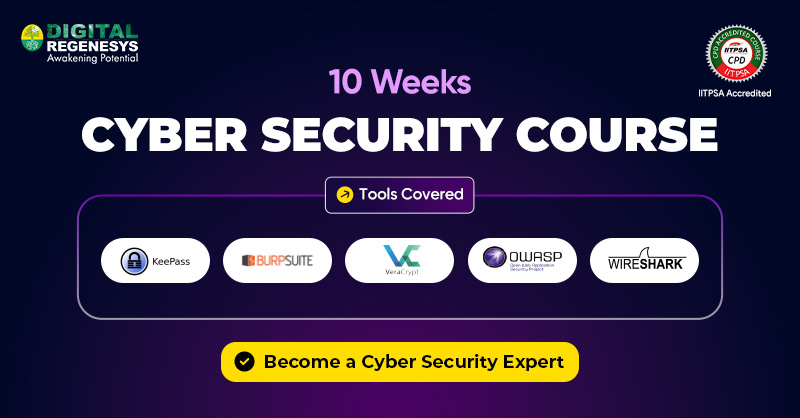How to Become a Cybersecurity Analyst in Mauritius

In this interconnected world, cybersecurity has evolved from being a technical concern to a critical national and business priority. As digital transformation accelerates, the need to protect sensitive information, secure networks, and prevent cyberattacks has become essential. Mauritius, with its growing digital economy, thriving financial sector, and increasing adoption of online services, is no exception. From banking systems to healthcare records, every sector now depends on secure digital infrastructure to operate efficiently and safely.
For those interested in how to become a cybersecurity analyst in Mauritius, the opportunities are both vast and rewarding. The role demands a combination of technical expertise, problem-solving skills, and a commitment to staying ahead of emerging threats. Whether you are a fresh graduate, an IT professional looking to specialise, or someone transitioning from another career, cybersecurity offers a dynamic path with strong demand.
In this article, we will explore what cybersecurity means in Mauritius, the reasons behind the rising demand, the steps to becoming an analyst, the skills and qualifications required, and the industries hiring these professionals. We will also discuss the career outlook, followed by answers to common questions about the field.
What is Cybersecurity in Mauritius?
To understand how to become a cybersecurity analyst in Mauritius, we need to understand what it is. Cybersecurity refers to the practice of defending digital systems – including networks, devices, and data – from malicious attacks, unauthorised access, and disruptions. In Mauritius, this is now a strategic focus area for sectors such as finance, telecommunications, healthcare, education, and public administration.
With more services moving online – from mobile banking to e-government portals, the need for secure systems has intensified. Professionals in this field work to ensure that digital platforms remain safe, resilient, and compliant with regulatory requirements.
Here are some typical applications of cybersecurity in Mauritius:
1. Securing online transactions in banks and fintech platforms
Protects financial transfers, payment gateways, and digital wallets from fraud, phishing, and unauthorised access.
2. Protecting personal health data in digital medical systems
Ensures patient confidentiality, prevents leaks, and safeguards medical records against unauthorised use.
3. Monitoring network traffic to detect and prevent cyber intrusions
Uses specialised tools to identify unusual activity and block potential attacks before they cause damage.
4. Ensuring compliance with data protection and privacy regulations
Helps organisations adhere to national and international standards, avoiding penalties and maintaining trust.
Also read – Types of Cybersecurity Tools

Why Is Cybersecurity in High Demand in Mauritius?
The demand for skilled professionals in this field has been steadily increasing, and there are several key reasons for this growth.
Here’s why how to become a cybersecurity analyst in Mauritius has become a pressing career question for many:
1. Growth of Digital Services
As more businesses and institutions shift to online platforms, the need to secure transactions, data, and systems has become urgent.
2. Rise in Cyber Threats
Attacks such as phishing, ransomware, and social engineering have grown in frequency and complexity, demanding advanced defensive skills.
3. Data Privacy Regulations
Organisations must comply with evolving cybersecurity standards and laws, placing greater emphasis on skilled professionals to oversee compliance.
4. Remote Work and Cloud Computing
Widespread adoption of these practices has created new vulnerabilities, increasing the demand for security expertise.
5. Critical Infrastructure Protection
Essential sectors such as banking, healthcare, and transportation require constant cyber protection to ensure safe operations.
Read more – Best Cybersecurity course
How to Become a Cybersecurity Analyst in Mauritius
Cybersecurity welcomes both newcomers and experienced professionals seeking a career shift. While technical knowledge is vital, qualities such as analytical thinking, precision, and adaptability are equally important.
Here are the key steps to get started:
1. Learn the Fundamentals of IT and Networking
Develop a strong understanding of computer systems, network architecture, and data communication principles. This foundation is crucial for identifying vulnerabilities and securing systems.
2. Explore Cybersecurity Concepts and Tools
Gain familiarity with areas like threat detection, encryption, malware analysis, and the use of defensive tools such as firewalls and intrusion detection systems.
3. Practice with Real-World Scenarios
Use virtual labs or simulated environments to understand how attacks happen and how to defend against them.
4. Document Your Work
Maintain a portfolio of security assessments, incident reports, or simulated case studies to demonstrate your skills to employers.
5. Stay Updated with Trends
Cybersecurity evolves rapidly; regularly follow industry news, threat reports, and new defensive techniques.
6. Join the Local Tech Community
Participate in networking events, online forums, or knowledge-sharing groups to expand your professional connections and insights.
You may also like to read more about – What qualifications do I need to study cyber security?
What Qualifications Do I Need to Become a Cybersecurity Analyst in Mauritius?
When asking what qualifications do I need to be a cybersecurity analyst in Mauritius, it’s important to note that there are multiple entry routes. While a degree in IT, computer science, or related fields can be helpful, it is not the only path.
Employers often value practical expertise and a demonstrable ability to handle cyber threats.
Core skills and competencies include:
1. Understanding of operating systems
Proficiency in Windows,Linux, and other platforms is essential for monitoring and securing devices.
2. Networking knowledge
Understanding protocols such as TCP/IP, DNS, VPNs, and firewall configurations helps identify and close vulnerabilities.
3. Familiarity with cybersecurity tools
Tools like Wireshark, Nmap, and Metasploit assist in detecting, analysing, and preventing attacks.
4. Incident detection and response abilities
Ability to spot irregularities, investigate incidents, and apply corrective measures effectively.
5. Basic programming skills
Scripting in Python or Bash can help automate security checks and tasks.
6. Attention to detail and analytical thinking
Essential for spotting subtle anomalies and anticipating potential risks.
Also read more about – Why Enrol In A Cyber Security Course For A Promising Career?
Career Overview for Cybersecurity Analysts in Mauritius
The career overview for cybersecurity analysts in Mauritius shows a profession that is expanding rapidly due to the country’s growing reliance on secure digital systems. As businesses and government agencies continue to digitise their operations, the demand for skilled analysts is only increasing. Professionals in this field are not limited to one industry; instead, they can choose from a variety of sectors that require protection against evolving cyber threats. Understanding how to become a cybersecurity analyst in Mauritius means exploring where these opportunities lie. Here are some of the key industries actively hiring cybersecurity experts:
1. Banking & Finance
This sector is one of the largest employers of cybersecurity talent in Mauritius. Analysts help secure mobile banking platforms, detect fraudulent activities, and ensure compliance with financial regulations. They also monitor suspicious transactions to protect both customers and the institution’s reputation.
2. Healthcare
With the increasing adoption of electronic health records and telemedicine, healthcare organisations need cybersecurity analysts to safeguard patient data. These professionals develop strong encryption protocols, prevent unauthorised access, and protect sensitive systems from ransomware and phishing attempts.
3. Telecommunications
As the backbone of Mauritius’ digital connectivity, telecom companies rely on cybersecurity analysts to protect networks from intrusion attempts. Analysts monitor large-scale data traffic, detect unusual activity, and implement measures to secure both infrastructure and customer data.
4. Government
National security depends heavily on data protection, and government agencies employ analysts to secure citizen portals, national databases, and critical digital identity systems. These roles often involve working with sensitive information and preventing large-scale cyberattacks.
5. Education
With more universities and schools adopting online learning platforms, cybersecurity analysts ensure student information and academic research data remain safe from cyber threats. They also advise institutions on best practices for data security.
6. Retail & E-Commerce
Online shopping platforms depend on secure payment gateways and customer data protection. Analysts here focus on preventing breaches, safeguarding payment information, and ensuring compliance with data protection laws.
Also read about – How Do I Start A Career In Cyber Security?
Conclusion
The role of a cybersecurity analyst in Mauritius is becoming increasingly vital as the country’s digital infrastructure expands. With opportunities available across finance, healthcare, telecommunications, government, and more, the profession offers diversity and long-term stability. The rise in cyber threats means that skilled professionals will remain in demand, making this an excellent career path for those who are passionate about technology and security.
At Digital Regenesys, the Cybersecurity Certificate Course is designed to equip learners with the skills, tools, and knowledge needed to excel in this growing field. The programme provides practical training in threat detection, incident response, and risk management, ensuring learners acquire both technical expertise and problem-solving skills. With its flexible learning approach, industry-relevant curriculum, and focus on real-world application, Digital Regenesys offers one of the best pathways for aspiring cybersecurity professionals.
Take the first step today towards securing your future in the world of cybersecurity.
Last Updated: 18 September 2025